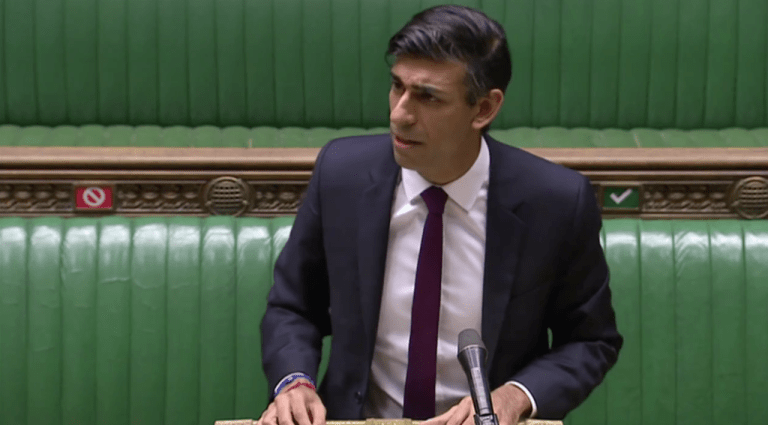
It is a huge relief. For the first time in many years, Britain’s ruling Conservative Party has made a sane, even boring choice as its new leader.
The selection of Rishi Sunak gives the country its first prime minister of Indian ethnic origin, its youngest ever prime minister (at 42, pipping David Cameron, who when entering office in 2010 was 43) and, thanks to his marriage, its richest-ever leader (at least in modern times; some aristocratic prime ministers probably were even richer).
Yet his most crucial characteristic is that he is not Boris Johnson and not Liz Truss. We have had enough of such excitement.
Sunak’s task won’t be simple. But please let us English celebrate the positive: We have dodged the bullet of the return of Boris Johnson, which would have been devastating for our democracy because it would have proved that breaking laws and ignoring ethical codes no longer mattered.
Johnson’s return would also have been absurd from the point of view of his own party: It is only 16 weeks since he was forced to resign when 60 members of his government resigned within 24 hours. It was simply not credible to think that he could have become acceptable again to those members of Parliament, let alone the public as a whole, in such a short time.
Nonsensically, some Tories of the Taliban persuasion have labeled Sunak as “socialist” for having built generous income-support programs during the Covid-19 pandemic while he was chancellor of the exchequer and for having opposed the Liz Truss/Kwasi Kwarteng “growth strategy” of massive unfunded tax cuts. Most of us would just label this as sensible.
Mr Sunak, by contrast, is thoroughly decent and, by political standards, honest. He was an early advocate of Brexit, was said during the pandemic to have been resistant to lockdowns, and is generally labeled as right-wing, albeit not of the dogmatic variety. He might be best described as a right-wing pragmatist.
Moreover, the maturity of British society is shown by the fact that Sunak’s ethnicity – his parents emigrated to Britain from East Africa in the early 1960s, and he practices the Hindu religion – is of no political importance at all. Recent Conservative governments have been full of the sons and daughters of African and South Asian parents. Some have been successful, some not, but their ethnic origin has played little part in their political careers.
More important for Sunak is the fact that he is very wealthy. His Indian wife Akshata is the daughter of Narayana Murthy, one of the co-founders of the Indian digital services firm Infosys, and the equity bequeathed to her in that firm accounts for most of their capital.
Rishi Sunak was already personally wealthy, having worked for Goldman Sachs and for an investment fund, but his marriage lifted him into the financial stratosphere. This will make him vulnerable to criticism that he has no understanding of ordinary people’s lives.
Nonetheless, Sunak’s biggest underlying problem is what he has inherited from his predecessors rather than from his father-in-law. The chaos and casual rule-breaking by Johnson have discredited the Conservatives’ claim to be a party of law and order, and the reckless mishandling of fiscal policy by Liz Truss has destroyed the idea that Tories are safe managers of the economy.
Regaining either of those images will be a steep uphill struggle. Only one thing can be said for sure: Britain will, under Prime Minister Sunak, remain a big supporter of Ukraine in its attempts to drive Russian troops out of its territory. That foreign-policy stance is shared by both major political parties and by all factions in the Conservatives.
What is much less clear is how the Sunak government will handle its relations with the European Union, particularly the sensitive issue of the status of the UK’s province of Northern Ireland.
Both Johnson and Truss used the threat to renege on our withdrawal treaty from the EU over Northern Ireland as a way to keep the support of right-wing, anti-European Tories. Sunak is believed to favor a more diplomatic approach, but he too will need those right-wingers’ support.
His first effort, however, will be to try to persuade financial markets there is no need for a special “Britain premium” on our borrowing costs, a premium that arose thanks to Truss’ recklessness. To win that argument, the public finances are going to have to be painfully austere – which will not make it easy for him to narrow the more than 50-percentage-point lead that the Labour Party currently holds in the opinion polls.
Formerly editor-in-chief of The Economist, which he had served earlier as Tokyo bureau chief, Bill Emmott is currently chairman of the Japan Society of the UK, the International Institute for Strategic Studies and the International Trade Institute. A version of this article was first published by La Stampa. This expanded version, published by Bill Emmott’s Global View, is republished here with kind permission.

